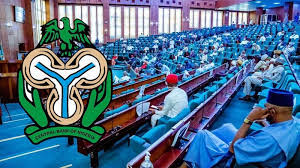Isaac Samuel
The House of Representatives Committee on National Planning and Economic Development has cautioned the Central Bank of Nigeria (CBN) against the unintended consequences of maintaining high interest rates aimed at curbing inflation.
The Chairman of the Committee, Rep. Gboyega Nasiru (APC-Ogun), issued the warning on Wednesday in Abuja during a meeting with the Statistician-General of the Federation and Chief Executive Officer of the National Bureau of Statistics (NBS), Mr. Adeyemi Adeniran.
Nasiru said the caution became necessary as the CBN prepares for its 300th Monetary Policy Committee (MPC) meeting scheduled for early next week.
He noted that there appears to be a general consensus that the current administration has taken bold steps and pursued market-driven reforms, which are beginning to yield positive outcomes.
Nasiru acknowledged that the policy direction had delivered notable results, with the economy stabilising and investor confidence gradually returning.
He highlighted that Nigeria’s capital market had surged by about 100 per cent in the last two years, while the CBN recorded its highest external reserves in over three years.
The lawmaker added that the apex bank recently posted a profit of N38.8 billion—a significant recovery from the N1.15 trillion loss recorded in 2023
However, he expressed concern that the sustained high interest rate has adversely affected the manufacturing, agriculture, and Small and Medium Enterprises (SME) sectors, which are critical to employment generation.
“The Monetary Policy Rate (MPR) has been raised 10 times since January 2023, currently standing at 27.5 per cent—up from 16.5 per cent in 2023—in a bid to tackle demand-pull inflation.
“However, it appears the effectiveness of this policy has been undermined by structural bottlenecks and supply chain inefficiencies.
“It is therefore our view that, given the current economic landscape, the monetary authorities—at their meeting next week—should consider a more accommodative stance that supports both growth and employment,” Nasiru said.
In his remarks, Adeniran noted that the latest data released by the Bureau, covering the second quarter of 2024, reported an unemployment rate of 4.3 per cent—down from 5.3 per cent in the previous quarter.
He added that unemployment was more prevalent among females (5.1 per cent) than males (3.4 per cent), and higher in urban areas (5.2 per cent) compared to rural areas (2.8 per cent).
Adeniran further stated that young people face a relatively higher unemployment rate of 6.5 per cent, while 12.5 per cent of youth are not in employment, education, or training (NEET). The NEET rate was higher among young females (14.3 per cent) compared to young males (10.9 per cent)
The Statistician-General also disclosed that the Q3 and Q4 2024 reports are currently being finalised and will soon be released to the public.





